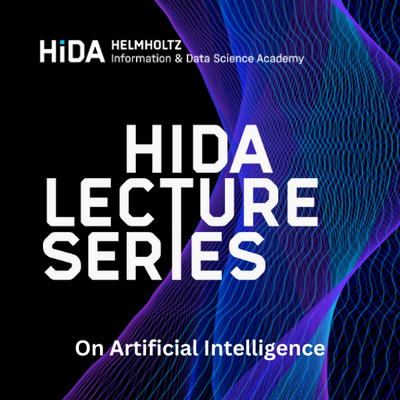HIDA Lecture @ MarDATA
Vortragender: Prof. Dr. Markus Reichstein, Max-Planck-Institut für Biogeochemie & Friedrich-Schiller-Universität Jena
Termin: 24.03.2022, 15:00 Uhr
Titel: "Machine-learning-model-data-integration for a better understanding of the Earth System"
Abstract: The Earth is a complex dynamic networked system. Machine learning, i.e. derivation of computational models from data, has already made important contributions to predict and understand components of the Earth system, specifically in climate, remote sensing and environmental sciences. For instance, classifications of land cover types, prediction of land-atmosphere and ocean-atmosphere exchange, or detection of extreme events have greatly benefited from these approaches. Such data-driven information has already changed how Earth system models are evaluated and further developed. However, many studies have not yet sufficiently addressed and exploited dynamic aspects of systems, such as memory effects for prediction and effects of spatial context, e.g. for classification and change detection. In particular new developments in deep learning offer great potential to overcome these limitations.
Yet, a key challenge and opportunity is to integrate (physical-biological) system modeling approaches with machine learning into hybrid modeling approaches, which combines physical consistency and machine learning versatility. A couple of examples are given with focus on the terrestrial biosphere, where the combination of system-based and machine-learning-based modelling helps our understanding of aspects of the Earth system.
Markus Reichstein is Director of the Biogeochemical Integration Department at the Max-Planck-Institute for Biogeochemistry. He is Professor for Global Geoecology at the FSU Jena since 2013 and founding Director at the Michael-Stifel-Center Jena for Data-driven and Simulation Science. His main research interests revolve around the response and feedback of ecosystems (vegetation and soils) to climatic variability with a Earth system perspective, considering coupled carbon, water and nutrient cycles. Of specific interest is the interplay of climate extremes with ecosystem and societal resilience. These topics are adressed via a model-data integration approach, combining data-driven machine learning with systems modelling of experimental, ground- and satellite-based observations. He has been serving as lead author of the IPCC special report on Climate Extremes (SREX), as member of the German Commitee Future Earth on Sustainability Research, and the Thuringian Panel on Climate. Recent awards include the Piers J. Sellers Mid-Career Award by the American Geophysical Union (2018), an ERC Synergy Grant (2019) and the Gottfried Wilhelm Leibniz Preis (2020).






